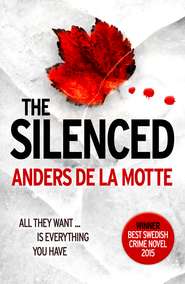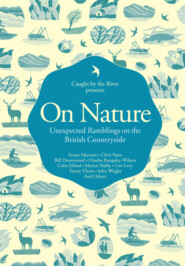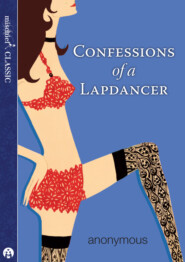По всем вопросам обращайтесь на: info@litportal.ru
(©) 2003-2025.
✖
Midnight Blue: A gripping historical novel about the birth of Delft pottery, set in the Dutch Golden Age
Настройки чтения
Размер шрифта
Высота строк
Поля
At once Greta cheers up. ‘That would be good! Look, there’s the market on the bridge. I always get vegetables there. And fish on the Dam, but the herring is better at Herring Merchants’ Gate. The dairy market is next to Droogbak. I get beer around the corner on Brewersgracht at Hasselar Brewery.’ There’s no trace left of her shyness; she talks and talks, telling me all about the crooked and reliable traders she knows.
When we return home with our heavy baskets, I pour two small glasses of beer and put them on the table. ‘Sit down for a minute, Greta, let’s have a drink.’
Surprised, the girl sits down.
’You see,’ I say. ‘There’s a time to work and a time to have a sit down. I reckon you’ve had a lot of work over the last few weeks.’
‘Hester gave me an earful if she caught me sitting down.’
‘I have no intention of giving you an earful,’ I say. ‘Not as long as the work gets done. And with the two of us that should be easy enough.’
We don’t sit for long. From the studio comes the sound of things being thrown, followed by hysterical crying. I look up in alarm.
‘That’s the mistress,’ says Greta. ‘She often has outbursts like that.’
‘I’ll go to her.’ I shove my chair back.
‘Take this.’ Greta stands up, grabs a tiny crockery jug and pours a goblet of wine from it. ‘Her medicine.’
‘What kind of medicine?’
‘I can never remember what it’s called. You put it in the wine.’
I nod, take the cup and walk to the hall. Noises are coming from Brigitta’s studio again. I quicken my pace and open the door without knocking.
Brigitta is standing at the window, her gown covered in paint and her hair a mess. She has torn off her cap and thrown it among the pots of paint and paintbrushes on the floor.
Her easel lies face down on the painting she was working on.
A couple of paint pots have been smashed against the wall, leaving a rather interesting still life on the wainscoting.
I take everything in at a glance. Deciding the mess isn’t important, I help Brigitta into a chair and give her the wine. ‘Here, drink this, madam. It’ll make you feel much better.’
As if suddenly robbed of all her energy, Brigitta slumps into the chair. She accepts the cup without enthusiasm. ‘It was going so well. I haven’t needed this for two days.’
‘Do you normally take it every day?’
‘My husband thinks it’s best. I would rather I didn’t, but if I don’t take it …’ Brigitta looks around as if she has only now realised what she’s done and bursts into tears.
Cautiously – I don’t know whether the gesture will be appreciated – I put my hand on her shoulder. ‘Don’t worry. I’ll have this cleared up in a jiffy. And your painting doesn’t seem to be damaged.’
Brigitta snorts contemptuously. ‘What does it matter? It’s rubbish. Everything I make is rubbish.’
‘Well, what I’ve seen was very pretty.’
‘You’re a servant – you have no grasp of art. You can’t come up with shoddy trash like this in the circles I move in.’
I don’t say anything more. I only caught a glimpse of the painting when I was introduced to Brigitta; I praised it because it seemed like the right thing to do. As Brigitta drinks her wine in tiny sips, I stand the easel back up. I put the painting on it and take a couple of steps back to have a proper look.
It’s nothing special. The flowers of the still life lack depth and the colours are unnatural.
‘See, you don’t like it either. I can see it on your face.’ Brigitta slams her goblet down on the table. She stares into space for a moment and begins weeping softly. ‘I wouldn’t know what to do with myself if I didn’t paint. Sit inside all day, go to market now and again, play a bit of harpsichord and hope my husband won’t come home too late … What kind of life is that? I would be bored to tears.’
‘You don’t have to stop painting, madam. It’s not about the result, it’s about the enjoyment of doing it.’
‘Of course it’s about the result. You can’t think I’d want to spend days producing something worthless. It may be difficult for someone like you to understand, but I have ambition. It’s normal for me to be critical. Did you know artists are highly sensitive, emotional people?’
‘I have heard that, madam.’
‘Then you understand how hard life is if you’re a perfectionist. Making art is a process with ups and downs.’
I think carefully, weighing my words. ‘In the village I come from, there was a girl who really liked painting too. Everyone said she had talent. Lots of talent. But unfortunately it did her no good.’
‘Why not?’
‘Because there was work to do on the farm. When she had time, she painted with beetroot juice on wooden panels she’d sanded smooth. She thought about painting all the time. She looked at the world in paint, as she once put it. The sun that shone on the meadows and ditches, the farm amid all that green, even the milk churns in the farmyard – she saw a still life in everything. But there was no time or material to paint it.’
Brigitta dries her eyes on her sleeve. ‘What happened to her?’
‘She got married and then she had even less time.’
We look at each other.
‘I know what you’re trying to say, Catrin. I realise how lucky I am to come from a rich family and have a husband who doesn’t mind me sitting in my studio all day. But painting is more than a hobby for me. The fact that I don’t have to earn a living doing it doesn’t mean I should lower my standards. Have you heard of Rembrandt van Rijn? We have a couple of his canvases in the house. Artworks admired by everyone, but he himself was critical when he saw them again. A true artist is never satisfied with his own work.’
‘That’s true, madam. And we can’t all be Rembrandt van Rijn. I think we should be satisfied with the talent we’ve been given and take pleasure in it.’
Brigitta says nothing and stares out through the leaded windows.
‘What I mean is that you should paint for yourself, madam. For the pleasure it gives you, even if it means setting your standards slightly lower.’
Brigitta turns slowly to face me. For a moment I’m afraid I’ve gone too far. She holds my gaze for a few seconds then stands up.
‘If you’ll tidy up my studio, Catrin, I’ll take a turn in the garden. I need to think.’
I nod and stoop to gather the paint pots up off the floor. Brigitta leaves the room with rustling skirts and a pleasant silence falls. I open the top part of the window to let in some fresh air and get to work. Once everything is tidy, I clean the brushes. I stroke the soft hairs with my fingertips. What would it be like to dip such a beautiful paintbrush into some paint and put it to a canvas? No doubt very different from my homemade brushes made from pigs’ bristles. I carefully pat them dry and lay them neatly next to each other on the table.
6 (#u18208c5c-ed08-5520-b19b-6e06bd01a38a)
During the day everything is fine. I get up at daybreak to start my chores and don’t go to bed until late in the evening. The work distracts me from the thoughts I don’t want to have and the silence I don’t want to hear. But everything that allows itself to be pushed into the background during the day returns at night, and it’s even stronger for having been repressed. Regardless how cold the nights get, I always leave the doors of my box bed open. When I close them I feel as though I’ve been buried alive. Often I jerk awake from a nightmare, thrashing around, struggling to breathe. When that happens, I leap out of bed and go to stand at the window to cool off and calm down. The deep blue of the night always has a calming effect on me. At home I used to sit at the window and gaze at the stars when I couldn’t sleep, wondering what was up there. Heaven? What do you have to do to get in? And how easily do you go to hell?
Back then, I didn’t concern myself with questions like that. Now, they keep me awake for hours.
‘Have you settled in here a bit now?’ Adriaan van Nulandt has summoned me to his office and is looking at me from behind his desk.
‘Yes, sir. Greta has been a great help.’
‘Good. And your mistress?’











